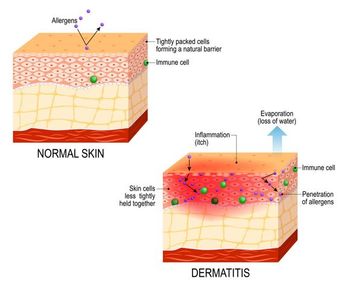
A Primer on Congenital Adrenal Hyperplasia with Expert Steroid Biologist Richard Auchus, MD, PhD
Richard J Auchus, MD, PhD, a preeminent steroid biologist, provides a concise and thorough primer on CAH and the challenges in managing the disorder safely and effectively.
Congenital adrenal hyperplasia (CAH) is a group of autosomal recessive disorders driven by enzymatic deficiencies in the adrenal steroidogenic pathway. The scientific and medical communities have spent decades working to develop treatment for the condition that avoids the difficult and potentially dangerous adverse events caused by the only therapy available - glucocorticoids.
Richard Achus, MD, PhD, is a preeminent steroid biologist with years of research invested in improving understanding of and treatment for CAH with a focus on improving quality of life for individuals with the disorder.
In this video interview with Patient Care, Auchus provides a primer on the pathophysiology of CAH and the current challenges in its management.
Richard J Auchus, MD, PhD, is the James A. Shayman and Andrea S. Kevrick professor of translational medicine, professor of internal medicine, and professor of pharmacology at the University of Michigan Medical School in Ann Arbor, MI. His areas of work include molecular and genetic mechanisms of human hypertension, improved diagnostic studies and management in primary aldosteronism and Cushing syndromes, modifier genes in 21-hydroxylase deficiency, cardiovascular disease in polycystic ovary syndrome, and the endocrinology of traumatic brain injury.
The following transcript has been edited lightly for style.
So to go from the broadest to the narrow, congenital adrenal hyperplasia refers to any defect, any genetic enzymatic defect in cortisol biosynthesis. And there are seven of these diseases, but the most common that accounts for about 95% of cases is 21 hydroxylase deficiency, and that's what we're going to talk about today. Now there's two flavors of 21 hydroxy deficiency. There's what we call classic and non classic. Non classic means it's a partial defect that you have no cortisol deficiency, no clinically manifest cortisol deficiency, but you can suffer from some of the particularly the women, from the accumulation of precursors and their conversion to androgens. Whereas classic means that there is clinically manifest cortisol deficiency, so very severe defect, less than 2% enzyme activity in most cases, certainly less than 5% and then obviously, the more severe the defect, the more severe the overflow of the steroids.
So the steroids pile up before the block at 21 hydroxylase. And just like when you put a dam in the river, the water's gotta go somewhere. So where do the steroids go? The only pathway they have is to androgens, and so the girls are born masculinized, and the children, if not diagnosed, will grow rapidly. They can suffer from the cortisol deficiency symptoms too, but they'll grow quickly because of the they'll mature quickly because of the sex theory exposures. They want being short adults. Now, fortunately, in the United States now, we conduct newborn screening for the for every baby that's born in the country, measuring a 17 hydroxyprogesterone, which is the steroid that accumulates to medially above the block on a newborn heel pad pest. But the the so then we can treat them from birth and give them the cortisol replacement. But it turns out that unlike what we would call Addison's disease, or autoimmune adrenal insufficiency, where they're the adrenals don't function at all, these adrenals are still functioning, but the steroids are making androgens now to to replace the cortisol deficiency, we know that we need about six to eight milligrams per meter square per day of hydrocortisone to match the cortisol production weight, and we should give it with the circadian rhythm to best match the normal circadian rhythm Of course, all which is high in the morning and low in the evening. And the problem with 21 hydroxyl deficiency is that the that is that you have two problems. You have the underfill, the lack of cortisol, but then you also have the overflow the androgens, which are driven by ACTH from the pituitary gland, which in turn is driven by CRH or CRF from the hypothalamus and some other factors, but primarily CRF when it's high. So then what Lawson Wilkins did in the 50s was he gave cortisone replacement to replace the cortisol deficiency. He also reasoned that the cortisone metabolized cortisol would provide negative feedback on the hypothalamus and pituitary and suppress the ACTH. But it turns out that it takes much more than the physiologic replacement dose to do that. So to get adequate Disease Control, usually have to expose people to twice or more of the usual cortisol dose. In fact, sometimes we have to resort to more potent synthetic glucocorticoids. So the natural history studies have been done of this condition, and the, you know, the patient series that have come out of London and the NIH are that these patients have a lot of complications related to overexposure to glucocorticoids, so they have obesity, glucose intolerance, poor bone mass, cognitive difficulties, all the things that you expect from people were treated with prednisone chronically or things like that, right?
Newsletter
Enhance your clinical practice with the Patient Care newsletter, offering the latest evidence-based guidelines, diagnostic insights, and treatment strategies for primary care physicians.

































































































































